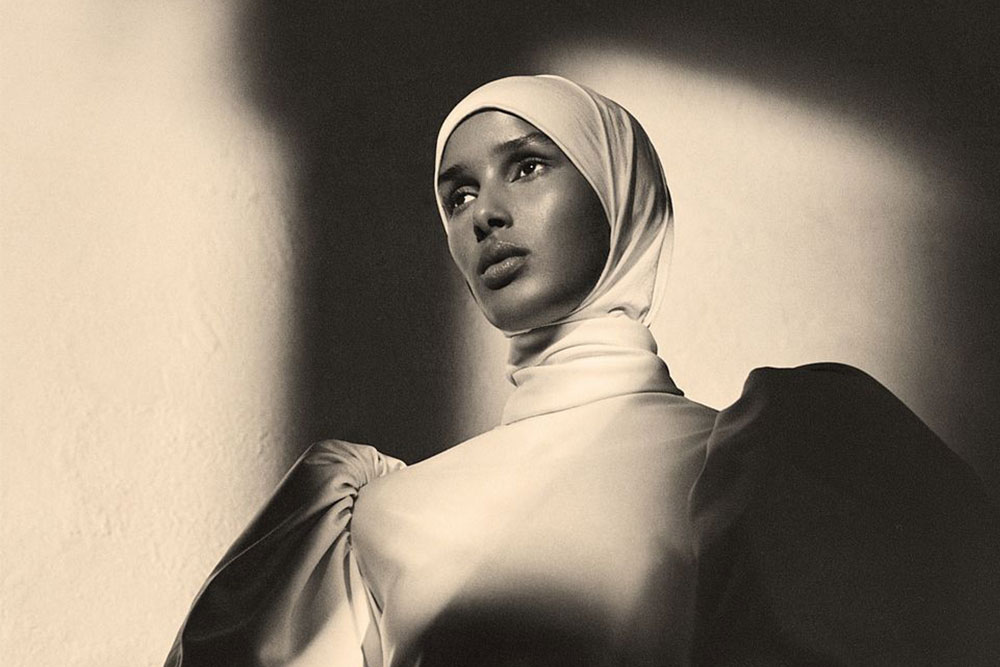Rawdah Mohamed, a Somali-Norwegian model who went viral after an Instagram post criticising a proposed hijab ban in France said she wants to combat 'deeply rooted prejudices' towards Muslim women. She started a campaign by posting a selfie on Instagram with the words 'hands off my hijab' written on her palm, which has been trending on Twitter, Instagram, and TikTok.
#HandsOffMyHijab, as well as its equivalent #PasToucheAMonHijab, has been adopted by Olympic fencer Ibtihaj Muhammad and US congresswoman Ilhan Omar, as well as thousands of women around the world. They've used the hashtag to oppose the French Senate's decision to make it illegal for someone under the age of 18 to wear the garment in public.
'I started the hashtag as I felt the need to humanise the movement,' Mohamed told an international news portal. 'Ethnic minority women are always spoken for. I wished to take back the control of our narratives and tell our stories,' she added. The proposed legislation, according to Mohamed, 'stems from discrimination and deeply rooted stereotypes toward Muslim women.'
In April 2011, France became the first country to outlaw the niqab in public spaces, and French towns have since outlawed the burkini, igniting a national debate about nationalism, identity, and feminism.

On her viral Instagram post, Mohamed wrote: 'The hijab ban is hateful rhetoric coming from the highest level of government and will go down as an enormous failure of religious values and equality.'
The model went on to narrate a story of being told that she could not wear her hijab to school as an anti-bullying measure.'Sitting in a room full of adults discussing my body and what I could and couldn’t wear as a young girl left more scarring than the bullying itself,' she explained. She said it only made the bullying worse. 'I have lost count of the many times I was rejected for a job because of my hijab and not because of my lack of skill.'
She said she was turned down for several projects in the fashion industry because clients were afraid of criticism from politicians and the media if they used a woman in a hijab in promotional campaigns. 'I constantly have to fight against inaccurate representation and biased perceptions coming from the highest level of government, which is further perpetuated with the general public [and] the fashion industry,' she said.
Lead Image Courtesy: Instagram/@rawdis